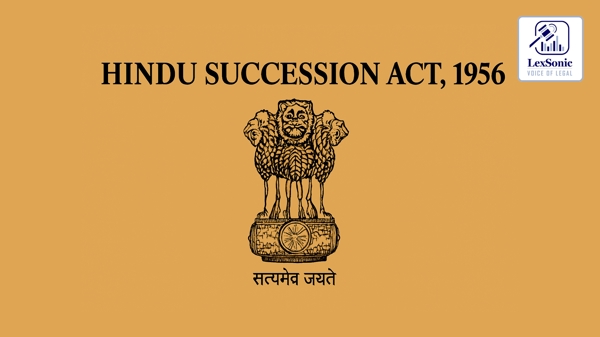The legal dispute in question revolves around the interpretation of property rights under the Hindu Succession Act (HSA), 1956, particularly regarding the rights of female Hindus to property acquired in lieu of maintenance. The case under consideration involves a family partition, where the appellant-defendant and respondent-plaintiffs dispute the rights to a piece of land previously held by Smt. Veerabhadramma, who was granted property under a partition deed. The central issue is whether Smt. Veerabhadramma, by virtue of the HSA, acquired absolute ownership of the land or whether her rights were limited, affecting the succession of the property.
Factual Background:
The dispute traces back to the family of Kallakuri Swamy, with two branches: one through his first wife, and the other through his second wife, Smt. Veerabhadramma. The subject of the dispute is the land comprising 3.55 acres situated in several villages. A partition deed executed in 1933 allocated this land to Smt. Veerabhadramma for her life, with an agreement that after her death, the property would be divided equally between the two branches of the family.
Smt. Veerabhadramma passed away in 1973, and following her death, the respondent-plaintiffs sought partition of the property. The appellant-defendants contended that Smt. Veerabhadramma had executed a Will in 1968, bequeathing the land to one of them. However, the plaintiffs argued that the rights conferred upon Smt. Veerabhadramma were limited to a life interest, as stipulated in the partition deed, and therefore could not be passed on through a Will.
The Trial Court’s Findings:
The trial court examined two primary issues: (1) whether Smt. Veerabhadramma, upon her death, had become the absolute owner of the property, and (2) whether the respondent-plaintiffs were entitled to claim partition.
The trial court concluded that the property was given to Smt. Veerabhadramma in recognition of her right to maintenance, but not as an absolute right. The court relied on the provisions of the Hindu Succession Act, particularly Section 14, and emphasized that a female Hindu’s property acquired for maintenance purposes would become her absolute property under Section 14(1) of the HSA, 1956, only if the property was given in lieu of her maintenance under Shastric law.
The court further held that the partition deed of 1933 did not grant Smt. Veerabhadramma absolute ownership but instead gave her a life interest. As a result, the property should be divided between the two branches of the family upon her death, in accordance with the deed.
The Appeal and High Court’s Ruling:
Dissatisfied with the trial court’s judgment, the appellant-defendants filed an appeal before the High Court. The High Court reaffirmed the trial court’s conclusions, noting that the property given to Smt. Veerabhadramma was in lieu of her maintenance and, therefore, under Section 14(1) of the HSA, she had acquired absolute ownership only over part of the property (2.09 acres), while the remaining portion (3.55 acres) was to be enjoyed by her as a life interest, passing to her sons after her death.
The High Court further clarified that property given to a Hindu female in lieu of maintenance or arrears of maintenance transforms into absolute ownership under Section 14(1) of the HSA, 1956, whereas property acquired through a will or gift would be governed by Section 14(2) and would not be automatically vested with absolute rights unless explicitly stated.
Legal Implications of Section 14 of the Hindu Succession Act:
The crux of this case lies in the interpretation of Section 14 of the Hindu Succession Act, which governs the property rights of female Hindus. Section 14(1) declares that any property possessed by a female Hindu, whether acquired before or after the commencement of the Act, shall be held by her as the full owner, except in certain circumstances.
In particular, Section 14(2) provides an exception to this rule, where the property is acquired under a written instrument, such as a will or decree, which creates a restricted estate in the property. This section comes into play when the property is not given in recognition of a pre-existing right, such as maintenance, and therefore does not automatically vest in the female as her absolute property.
Several judicial precedents have elucidated the scope and application of Section 14, particularly in cases where property is given in lieu of maintenance. Courts have consistently held that a Hindu female’s right to maintenance, as recognized under Shastric law, is sufficient to convert the property she holds in lieu of maintenance into her absolute ownership under Section 14(1). Notable judgments, including *V. Tulsamma v. V. Sesha Reddy* and *Gulwant Kaur v. Mohinder Singh*, have affirmed this principle, emphasizing that the right to maintenance itself is sufficient to transform the property into full ownership.
Conclusion:
The courts in this case applied the well-established principles of Section 14 of the Hindu Succession Act, 1956, to determine the extent of Smt. Veerabhadramma’s rights to the property. They concluded that she held a life interest in the disputed property, which was to be divided between her two sons after her death, as stipulated in the partition deed. The courts affirmed that property given to a Hindu female in lieu of maintenance or arrears of maintenance would, under Section 14(1), become her absolute property only if it was acquired in recognition of her maintenance rights.
The appeal was thus dismissed, and the lower courts' findings were upheld, providing clarity on the application of Section 14 in disputes involving property acquired for maintenance purposes under Hindu law.
Section 14, Hindu Succession Act - 1956
Hindu Succession Act, 1956
HINDU MARRIAGE ACT, 1955
Hindu Adoptions and Maintenance Act, 1956
Section 96., Code of Civil Procedure - 1908
Code of Civil Procedure, 1908

